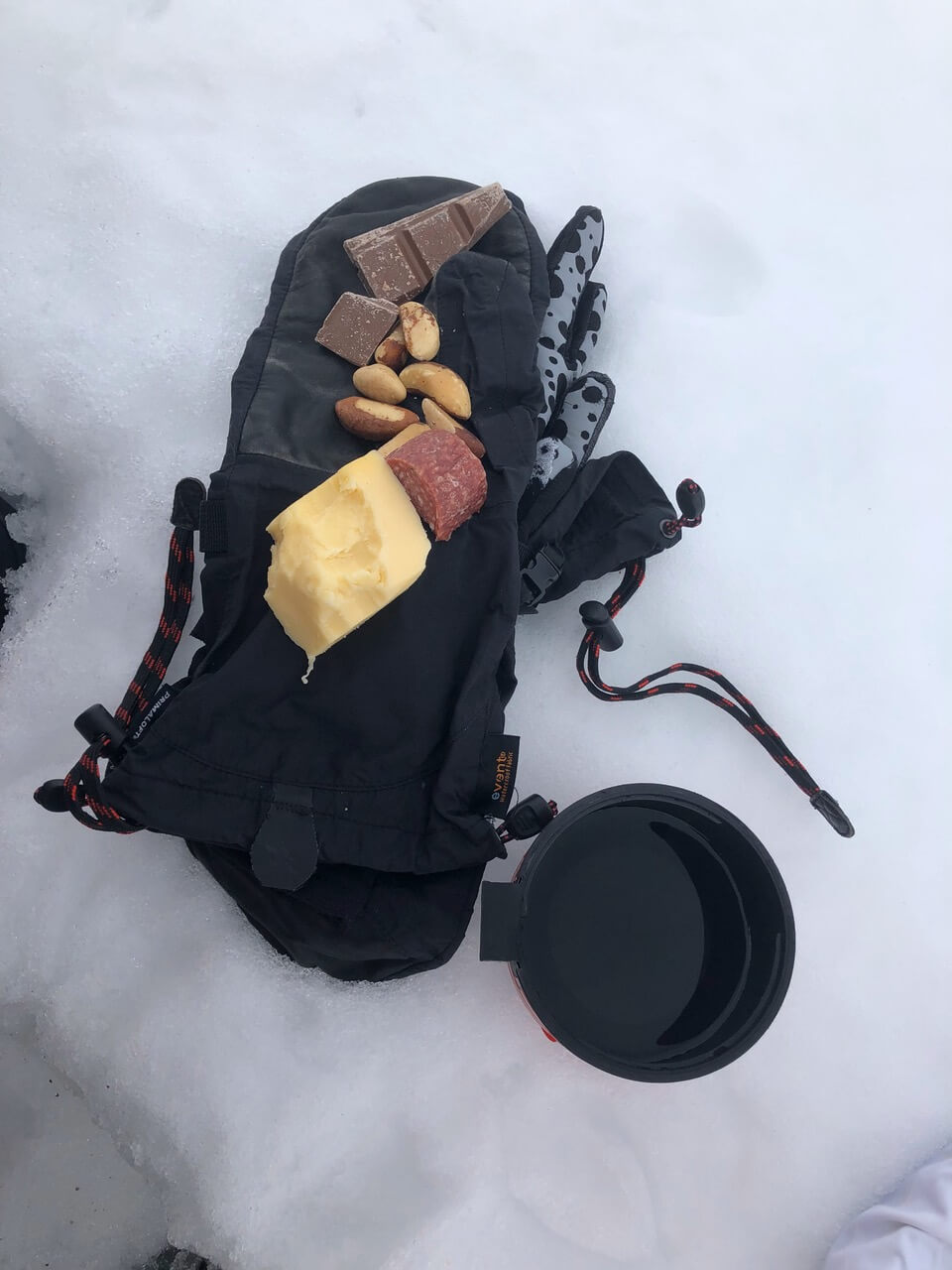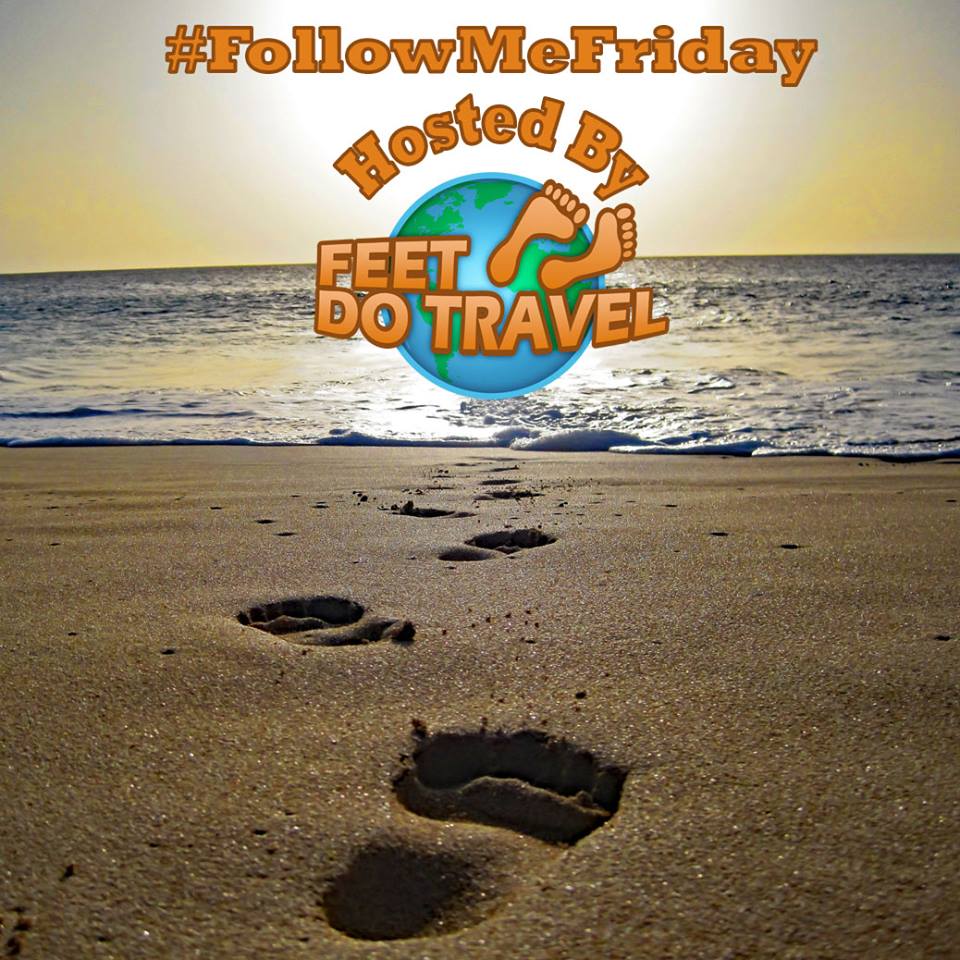Note: This is a guest post by James, a fellow blogger at TrekSumo, on his hike across the frozen surface of Lake Baikal.
How hard can hiking be? After all, it’s nothing more than a little bit of walking, maybe with a few hills dotted along the way, right? Sometimes this is true, but what about those long distance and thru-hikes? They can be tough on both your body and mind.
With that thought in mind, we’re going to delve into a few ideas that will make you unbreakable in the face of adversity on the trail.
I’m going to assume that you’re already fit enough to handle any hardship nature can throw at you. In fact, building a high degree of fitness should be your first aim as you’ll be less likely to suffer the usual aches, pains and cramps that come with long distance hiking.
And when you hard a strong, fit body you’ll find staying positive during an arduous hike is far easier and you’ll be less likely to feel the need to reach for your lifesaving gadget when the going gets tough.

Before we get started, I’d better introduce myself. My name is James and I’m a former soldier in the British Army. The unit I served in has an incredibly hard course that must be passed and the number of candidates who even complete the course, let alone be chosen to serve, is tiny.
One of the most used methods of testing applicants for the unit is that of walking long distances, over huge hills whilst carrying a house-sized ruck (here’s a useful training plan for anyone interested in rucking). Let’s just say I understand what it takes to hike a long way in difficult conditions.
So, how do you stay positive when your hike gets hard?
Get Excited, Not Fearful
Fear is a powerful enemy. It can make you run away from adversity, give up on your dreams or even bring tears to your eyes. But fear is nothing more than an emotion and it’s one that can be conquered in many ways.
The Royal Air Force runs the parachute training school, a facility that all airborne and special forces must attend in order to gain their para wings. The motto of the school is: “Knowledge Dispels Fear”. Which is great when you have time to prepare, but what happens when some unexpected fear threatens to overwhelm you and ruin you trek?
Get excited!
Really, get excited.
Here’s the science: fear can paralyse us. Excitement drives us forward. The chemical signals we call fear and excitement activate the hypothalamus in the same way which means that, in a bizarre way, they are the same emotion.
Not convinced? Look at it this way: how often have you heard an athlete talk of being excited about an upcoming event? What they’re doing is using an emotion they can control – excitement – to override performance-impacting fear.
If it’s good enough for an Olympic athlete, it’s good enough for us.
Eat Well
How often have you been so immersed in a hike that you have forgotten to eat? The last planned break for food was ten miles back and now your stomach is groaning, your legs are heavy and your boots are dragging every second step.
Hunger not only affects your ability to perform arduous physical acts, it also impacts our mood which makes it easier for us to experience a sense of hopelessness when times get the difficult. As we become more and more hungry our bodies levels of glucose dip and we experience a corresponding low of emotions. So what should we do?
Eat like you’ve never eaten before.
Okay, don’t eat that much. Instead focus on a mix of snacks that deliver quick and slow energy release. Jelly babies and granola bars work for me.
Now the science part you’ve been looking forward to. For many years, scientists were sceptical of claims that people can feel grouchy when hungry, so Professor Francesco Leri at the University of Geulph decided to test a theory. His experiments showed that as levels of blood sugar fell in groups of lab rats, the rodents generated more corticosterone in their blood (an indicator of stress). He quickly reversed the rise by feeding the animals.
Seems to me like science is catching up with what we hikers already know.

Think About What You ‘Are’ Doing
We all tell our ourselves what we are going to do in future, we all have plans of what will come to pass at some point. Well, I hope you do. The problem is that we never know if we’re going to succeed, and this can lead to uncertainty and doubt.
And when combined with hunger, or fear, our hard hikes can seem impossible. Especially when that hill looms into view – the one with its peak wreathed and hidden by clouds! At these times we need to shift our thinking from what we are planning to do and instead think about what we are doing.
How?
Remind yourself that you’re already doing it. What I mean, don’t say, ‘I’ll try’; you don’t need to because you’re already doing it, moving forward.
This has no basis in science that I know of. It simply keeps me focussed on the hike and not the feelings of adversity that come on the more difficult routes. In my mind, the difference lies between a plan (which the human brain can so easily tear down when hardship stacks up) and an ongoing action (something my mind accepts is in progress and so I might as well get it finished).
The next time you find yourself planning how to climb the next hill, stop! Put one foot in front of the other and instead of saying, ‘I will’ say, ‘I am doing it. Now let’s get it done.’
Celebrate Your Small Wins
Can you remember that last time you had a fortuitous moment? Does that little buzz of excitement still tickle the back of your neck when you picture your win? Good, because that’s another tool we can use to beat down the negative thoughts and feelings that can strike when we are hiking.
It’s tempting to tell you to celebrate your big wins. But let’s save that moment for when your hike is finished. Acknowledging your small wins is a vital part of keeping your mind in a positive place and resilient (which you need to be when travelling long distance on foot).
We all know the power of progress and the boost it can bring to not only our outlook, but also our mental health. And it’s not just the big victories that carry us forward.
Science has shown that even small wins can make a huge difference to many areas of our lives, including our resilience which we need when the darkness clouds our mind.
The key here is to acknowledge the gains, not matter how tiny. Give a little whoop of joy as you cross that next contour line, yell from the hill top when you crest the first peak in a rising line that reaches into the clouds, pat yourself on the back for packing a down jacket you can use when the cold night air creeps in.
But no matter what you do, celebrate.
Smile Every Step of Your Hike
Okay, smiling non-stop for 20+ miles is not easy – you’ll likely cramp up to the point that you jaw muscles scream at you to be miserable. We all know that even a small grin can lift the day of a lucky recipient. But what affect does smiling have on you?
Research has shown by simply smiling you can reduce levels of stress and distress. These facts where shown when Keltner and George Bonanno of Catholic University measured facial expressions of people who discuss a recently deceased spouse (a bit gruesome, but there’s a point here). Results of the experiment showed a significant decrease in feelings of distress when the subject genuinely laughed, or smiled.
I’m not going to say anymore. Even if you don’t believe the science, next time you’re on the trail and the going gets tough try a little smile (and hold it for at least 30 seconds). Let us know what it did for you.

Wrapping It Up: Stay Positive You Happy Hikers
Author: James
James is a former soldier in the British Army, now an outdoor adventurer and blogger. Together with his blogging buddy, Jake, they run an outdoor gear review site TrekSumo. Check it out, they don’t bite. 🙂


